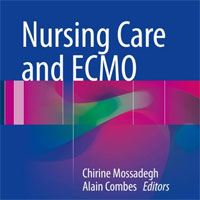
Effects of Neuromuscular Block Reversal with Sugammadex vs. Neostigmine on Postoperative Respiratory Outcomes After Major Abdominal Surgery
No differences found in pulmonary function in patients reversed with sugammadex or neostigmine in a high-risk population. 126 patients were included in the main analysis. In the neostigmine group (n = 64), mean (95%... read more

How To Prevent Brain-Sapping Delirium In The ICU
After an overwhelming infection sent O'Burke into five-organ failure, he also developed ICU delirium, perhaps related to heavy sedation. An ICU protocol developed at Vanderbilt University Medical Center found that getting... read more

Use of Levosimendan in ICU Settings
Levosimendan has been demonstrated to have potential utility in a range of critical illness scenarios. It must be acknowledged, however, that in each sphere of application, the evidence is incomplete or indicative rather... read more

How Should We Treat Acinetobacter Pneumonia?
The optimal treatment for multidrug-resistant A. baumannii pneumonia has not been established. New therapeutic options are urgently needed. Well designed, randomized controlled trials must been conducted to comprehensively... read more

Early vs. Delayed Administration of Norepinephrine in Patients with Septic Shock
This study investigated the incidence of delayed norepinephrine administration following the onset of septic shock and its effect on hospital mortality. Our results show that early administration of norepinephrine in... read more

Transport of a Prone Position ARDS Patient
Critical care transport of prone acute respiratory distress syndrome (ARDS) patients is a feasible and cost-effective intervention that will help prevent treatment delays and interruptions. A nonphysician critical care... read more

Should fecal microbial transplantation be used in the ICU?
FMT has become an attractive option to mitigate multiple organ dysfunction in the ICU. This article discusses the physiology, rationale, early experience, and expectations for such therapy in the critically ill patient. The... read more

Is Hemoglobin Good for Cerebral Oxygenation and Clinical Outcome in Acute Brain Injury?
Hemoglobin is important for cerebral oxygenation and strategies to minimize anemia should be undertaken. higher hemoglobin levels are associated with less cerebral ischemia and better clinical outcome, whether this remains... read more

Effect of Protocolized Weaning With Early Extubation to Noninvasive Ventilation vs Invasive Ventilation
This complex randomized, controlled trial failed to demonstrate that early extubation to non-invasive ventilation reduced the total time of mechanical ventilation. I will continue to extubate early and will use non-invasive... read more

Septic Shock and the Use of Norepinephrine IMCU
Elderly patients with septic shock treated with norepinephrine (NE) displayed a better Intermediate Care Unit (IMCU) survival at the ward and at 30 days than previously expected. Our retrospective chart study did not... read more

Long-term Cognitive Impairment and Delirium in ICU
ICU delirium was positively associated with impaired information processing speed and executive functioning at six-months post-discharge for this cohort. Testing for cognitive impairment with RBANS and TMT should be considered... read more

The Effect of Early Mobilization in Critically Ill Patients
This study indicated that early mobilization was effective in preventing the occurrence of ICU-AW, shortening the length of ICU and hospital stay, and improving the functional mobility. However, it had no effect on the ICU... read more

Targeted Temperature Management for Cardiac Arrest with Nonshockable Rhythm
Among patients with coma who had been resuscitated from cardiac arrest with nonshockable rhythm, moderate therapeutic hypothermia at 33°C for 24 hours led to a higher percentage of patients who survived with a favorable... read more
Vitamin C for Sepsis
Dr. Alpha A. Fowler of Virginia Commonwealth University presented findings from the CITRIS-ALI trial that studied the role of vitamin C in patients with septic ARDS. The findings were presented @ESICM in Berlin and have just... read more








